Determined to enjoy longer and healthier lives, two women researched the science to find the key. Here, they share what they discovered
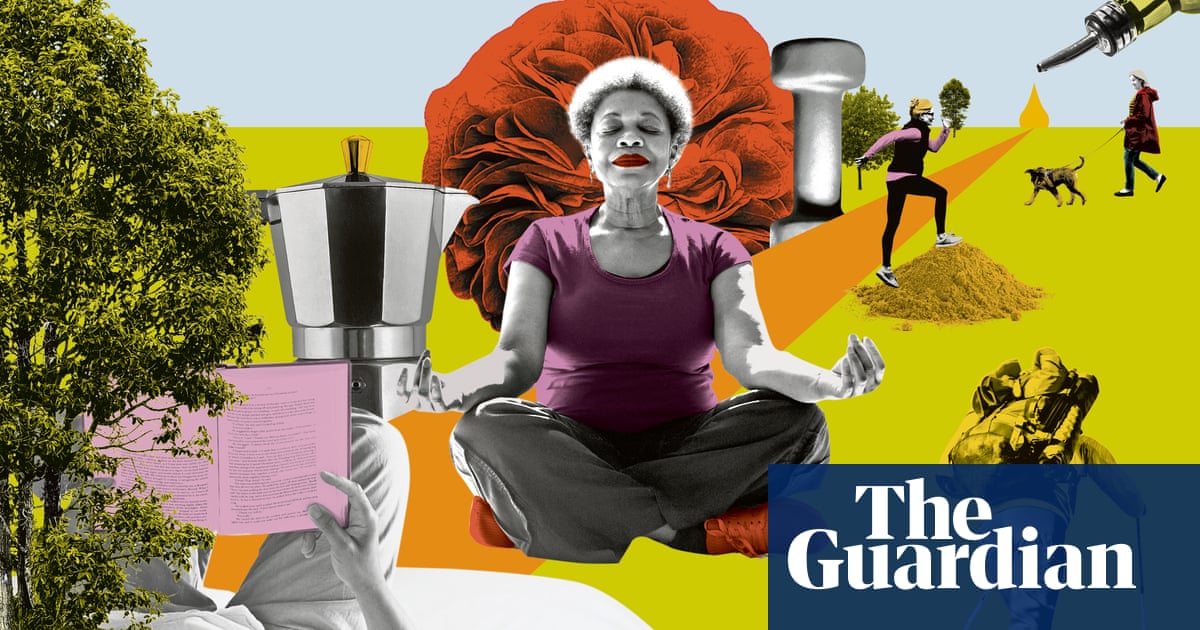
When Susan Saunders was 36, her mother was diagnosed with severe dementia. I had a toddler, a newborn, a full-time job as a TV producer and I became a carer as well. As a teenager, she had watched her mum care for her own mother, who had the same condition. I became determined to do everything I could to increase my chances of ageing well.
Annabel Streets story is similar. When she was a student, her grandfather died from cancer months after he retired; later, she watched her mother care for her grandmother, who lived with dementia and crippling rheumatoid arthritis for nearly 30 years. When I developed a chronic autoimmune disease, I knew things had to change. But by then I had four young children and there was precious little time for my own health.
Together, Saunders and Streets started researching the latest science on how to have a healthier, happier old age and how to apply it to their own lives, and blogged about their findings for five years. Their Age Well Project has now been published as a book, compiling almost 100 shortcuts to health in mid- and later life and Streets and Saunders, who are both in their 50s, say they have never been in better health.
What did they learn?
Look to your ancestors for answers
If you are serious about ageing well, you need to become an expert in your own health dont be afraid to ask questions of your doctor and your family. We started our project to age well by compiling ancestral health trees, listing any known illnesses in old age and the causes of mortality and ages at death of as many direct ancestors as possible. We did DNA tests, built records of our blood pressure, blood glucose, cholesterol and vitamin D levels, and took note of our BMI and waist-to-hip ratio to devise more personalised ageing plans.

Enjoy coffee
Coffee is rich in antioxidants, polyphenols and phenylindane, a recently identified compound that researchers think may help fend off Alzheimers and Parkinsons disease. Drinking coffee has also been linked to reduced risks for several cancers, heart disease and type 2 diabetes. Drink your coffee without sugar or processed syrups, and dont make it too milky: the antioxidant value appears to drop when milk is added.
Walk faster
Walking is good, but pace matters. Brisk walking has been linked to better memory, better health and a longer life. Increase your pace until you are slightly out of breath or sweaty and aim for 30 minutes a day, ideally outdoors to get the additional benefits of vitamin D and light. New research suggests that those walking first thing in the morning also make better decisions during the day, so consider swapping your morning commute for a robust walk.
Exercise in green space
Trees produce phytoncides which help to lower blood pressure, reduce stress and boost immunity. The microbes in forest soil have been found to reduce depression and may contribute to the health of our microbiome. A 15-minute walk is all it takes to reap the benefits, but researchers have found that a weekend in the woods improves immunity for up to a month, while a short afternoon run or walk somewhere green means better sleep at night.
Fast every day
Our bodies have adapted to go without food for short periods the surprise has been discovering how beneficial this is for many of us. Intermittent fasting, made famous by Michael Mosleys popular 5:2 diet, is aproven method for increasing longevity. It also appears to fend off Alzheimers, type 2 diabetes and weight gain. There are several forms of fasting and it is important to find one that suits your lifestyle. We like the extended overnight fast of 14-16 hours, which has been found to improve gut health, but was also followed by our distant forebears, who typically ate supper at sundown, rarely snacked, and then ate mid-morning the following day.
.
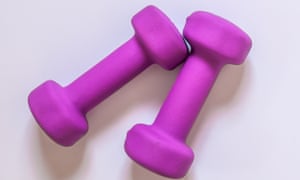
Build muscle
Experts believe resistance training is as important for ageing as aerobic exercise, eating vegetables and sleeping well. After age 40, we lose muscle at the rate of 1% a year, increasing our risk of heart attacks, strokes and osteoporosis. Recent research found that older adults who did twice-weekly strength training lived longer and with less illness than those who did none. We like rowing and weight-training for efficiency; we also keep pairs of weights near the kettle and the TV and lift them if we have a few minutes to spare.
Read books
Although reading is sedentary and solitary, frequent reading has been linked to longer, healthier life. A Yale study of 3,600 over-50s found that reading increased longevity by almost two years; readers of books outlived readers of newspapers and magazines. While those who read for more than 3.5 hours a week lived longest, the researchers said 30 minutes a day was still beneficial. Meanwhile, every expert seems to recommend reading as a means of getting to sleep.
Work longer
While many of us dream of a golden age of retirement, a 2016 study found that people who worked longer lived longer, a fact reflected in earlier longitudinal studies that found correlations between retirement and poor health. Researchers speculate that this is because working usually involves social interaction, movement and a sense of purpose. Several studies have linked retirement with loneliness and depression. But working long hours year after year is not the answer either. Research shows that from mid-life onwards, the sweet spot for health and longevity is working at a less intense pace and perhaps for fewer hours.
Keep learning
Old brains are just as equipped to build new neurons and synapses as young ones. But this process works best when we repeatedly force ourselves to learn new things. The brain loves novelty: crafts, games, even cooking from a new recipe, all trigger the creation of neurons, but the more complex and more difficult the new activity is, the greater the rewards. Choose something that also involves social interaction and a bit of movement, such as singing. Best of all, try learning complex new dance moves.
Take a nap
Several studies have found that nappers have better attention and focus, better memory and better non-verbal reasoning. Oddly, nappers also appear to sleep better at night (with the proviso that your nap shouldnt be taken too late in the afternoon). A Nasa study found that sleepy pilots had a 45% improvement in performance and a 100% improvement in alertness after a short nap. But the key is to keep the nap short (about 30 minutes). Studies consistently show that naps of more than 90 minutes can be detrimental to our health.
Clear out your medicine cabinet
In particular, clear out unnecessary anticholinergics, often found in antidepressants, bladder drugs, medication for Parkinsons disease and some antihistamines and travel sickness pills. This isnt something you should do without your doctors guidance, but several studies have now linked ingesting high levels of anticholinergics with the onset of Alzheimers, even if taken for as little as a year. Ask your doctor for alternative medication, particularly if you are taking several pills containing anticholinergics.
Only spend on vitamin D and zinc
Study after study has found that supplements have very little benefit; we invest in good food instead. However, when it comes to vitamin D and zinc, the data is robust: vitamin D in the right dosage can help us age well while zinchas been shownto reduce the severity of coughs and colds. Those of us in the northern hemisphere arent able to get the sunlight necessary for the body to make vitamin D, so a supplement of at least 1,000 iu daily during the winter months is recommended by some ageing experts.
Avoid pollution
Pollution is rapidly becoming the biggest threat to our ability to age well, with more and more research linking particulate matter to lung cancer, heart disease, dementia, hypertension and diabetes. It is vital that we are vociferous in lobbying for cleaner air and that we play our part in reducing our own personal pollution footprints. But we can lessen the damage of living in heavily polluted cities. Avoid congested roads, switch to an anti-inflammatory diet (shown to mitigate the effects of pollution in some people), invest in a good quality air purifier and rotate it round your house, and fill your house with pollution-fighting greenery.

Use olive oil
We think of olive oil as liquid gold, such are its benefits, with improved heart health topping the list. A four-and-a-half year clinical trial involving 7,000 older adults at risk of heart disease found that those eating an olive oil-rich Mediterranean diet had 30% fewer instances of heart attacks and strokes, as well as improved lipid and cholesterol levels, and lower blood pressure. Olive oil consumption has also been linked to a slowing of the progression of breast cancer, reduced bone mass loss and better blood glucose control. Use it to cook or dress multicoloured vegetables.
Build bone density
The adage, use it or lose it, is never truer than when applied to bone strength. And its very specific: research has shown that professional tennis players have much higher bone density in their serving arm than their non-serving arm. The most beneficial exercise, if your joints are up to it, is jumping try to jump 10 to 20 times a day with a 30-second rest between each. Other high-impact exercise, such as running or skipping, also increases bone density. Resistance training such as lifting weights also boosts bones, but exerts less pressure on joints. If that all sounds too sweaty, ballroom dancing improves balance and coordination, resulting in fewer falls and fractures.
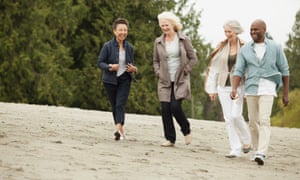
Photograph: Getty Images/Hero Images
Cultivate friendships
Loneliness is as big a mortality risk as diabetes. Research links social isolation to dementia, heart disease, stroke, depression and a 29% greater risk of dying. An eight-decade study found a clear correlation between having a large social network and living longer. More recent research shows the quality of friendships also helps keep us alive: ask yourself if your friends stimulate you and if they have a positive outlook. Helping and caring for others also strongly correlates with longevity.
Support immunity
It is often thought the immune system weakens with age, but research indicates that the reverse may be true: the immune system actually overreacts as we get older, creating more inflammation in the body when it is confronted by a virus, for example and speeding up the ageing process. With 70% of the immune system located in the gut, gut health is key. Support your immune system with a diet high in dark leafy greens, brassicas (such as cabbage and broccoli), alliums (such as garlic, leeks and onions) and mushrooms. Shiitake mushrooms, in particular, have been found to have a powerful effect on the immune system. If you have a cold, try a simple miso soup with mushrooms, ginger and greens.
Change how you eat, particularly in the evening
Changing how you eat, rather than what you eat, can make a bigger impact on longevity than a radical dietary overhaul. Piles of vegetables, whole grains, pulses and lean protein fill up our plates now. We also aim to eat earlier, whenever possible, to allow digestion to kick in well before bedtime. This means less disturbed sleep and a longer overnight fast, too. Eating earlier has enabled us to eat more slowly an essential but overlooked factor in the Mediterranean diet, allowing satiety hormones to kick in. And when we have eaten, we stop. Constant grazing and snacking means that the digestive system is permanently working and therefore also permanently producing insulin, potentially leading to insulin resistance, a precursor to diabetes.
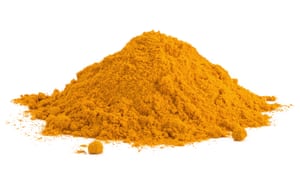
Add turmeric
A natural anti-inflammatory, turmeric has been linked to a reduced risk of Alzheimers, cancer and liver disease. It is also antiseptic, antibacterial and packed with antioxidants. Research suggests that curcumin, turmerics active ingredient, appears to counteract the low-grade, chronic inflammation that increases with age it may also improve brain function. Other studies have linked curcumin supplementation to reduced pain for arthritis sufferers, improved liver function and some relief from irritable bowel syndrome symptoms. Start your day with our turmeric sunrise tonic: a cup of warm water, 1 tbs apple cider vinegar, 1 tsp turmeric, tsp black pepper (which seems to increase absorption rates of curcumin) and tsp ginger pulp. Add honey to taste and stir well.
Meditate
Meditation isnt just hippie woo woo: research shows it has a powerful effect on the brain. It appears to reduce stress and promote empathy, and regular practitioners seem not to lose grey matter, or suffer reduced concentration, as they age. Just 15 minutes a day is enough to strengthen telomeres, the caps that protect our DNA and, according to a Harvard study, to have a positive impact on blood pressure levels. A very specific form of meditation, Kirtan Kriya, involving chanting and finger movements, stabilises brain synapses and increases cerebral blood flow researchers concluded that it should be considered for Alzheimers disease prevention. Cant spare 15 minutes? Take a few moments to focus on your breath or your surroundings to promote a feeling of calm.
Eat more fibre
If you make just one dietary change to boost longevity, make it this one. An Australian studytracked the diets of 1,600 people over 10 years to discover the impact of carbohydrate consumption on successful ageing. The most successful agers (those most free of disease after a decade) were the ones with the highest fibre intake usually from fruit, wholegrain bread and oats. The researchers suggested two possible reasons for this: fibre slows the digestion of food, thus keeping insulin levels in check, which in turn reduces inflammation (a key trigger of ageing); and some types of fibre ferment in the body, producing short-chain fatty acids, which also dampen inflammation. Fibre also helps reduce cholesterol levels, which in turn supports heart health, and lowers colorectal cancer risk by moving food through the gut quickly. The recommended daily intake of fibre is 30g; the UK average is 18g. A daily cup of beans or pulses, plus quality whole grains such as brown rice, quinoa and granary bread, will help boost your intake.
Avoid blue light in the evenings
Our electronic devices play havoc with our delicate circadian rhythms. Screens produce blue light, which helps wake us up in the morning, but at night suppresses production of melatonin, the vital sleep-inducing hormone. Control your exposure by adding time-sensitive filters that block blue light from your laptop and phone; set an alarm to remind you to start a pre-bed wind-down; and keep electronics out of the bedroom.
Look after your eyes
The best ways to protect our eyes are to avoid smoking, keep active and eat healthily, including foods rich in macular pigments anything bright yellow, orange or green is a rich source. Include plenty of vegetables such as corn on the cob, orange peppers, carrots and kale in your diet. Regular eye tests are a must: eyesight changes rapidly after the age of 40. Wear good-quality sunglasses on sunny days, even in winter, and take regular breaks if you spend a lot of your day looking at an electronic screen.
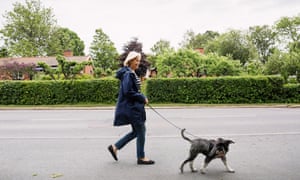
Walk a dog
The health benefits of owning a dog are obvious: dogs need walking, caring for and routine, all of which help us age better. A study of more than 3 million Swedes aged 40 to 80 found that dog owners had a lower risk of death due to all causes. Pet owners also have lower blood pressure and cholesterol than non-pet owners: stroking an animal lowers levels of the stress hormone cortisol. Having a dog means that your home might not be as clean as it could be and thats a good thing. Dog ownership increases the quantity of 56 classes of bacterial species in the home, which in turns boosts gut health.
Cultivate optimism
Studies have found that older people with a negative attitude to ageing have worse functional health, slower walking speeds and lower cognitive abilities than those with a more positive attitude. Negativity, unsurprisingly, puts stress on the body, elevating cortisol levels, which in the long term can impact heart health, sleep quality, weight and cognition. You really are as old as you feel, it seems.
The Age Well Project: Easy Ways to a Longer, Healthier, Happier Life by Annabel Streets and Susan Saunders (Piatkus, 14.99). To order a copy for 12.99, go to guardianbookshop.com or call 0330 333 6846. Free UK p&p on orders of more than 15, online only. Phone orders min p&p of 1.99.

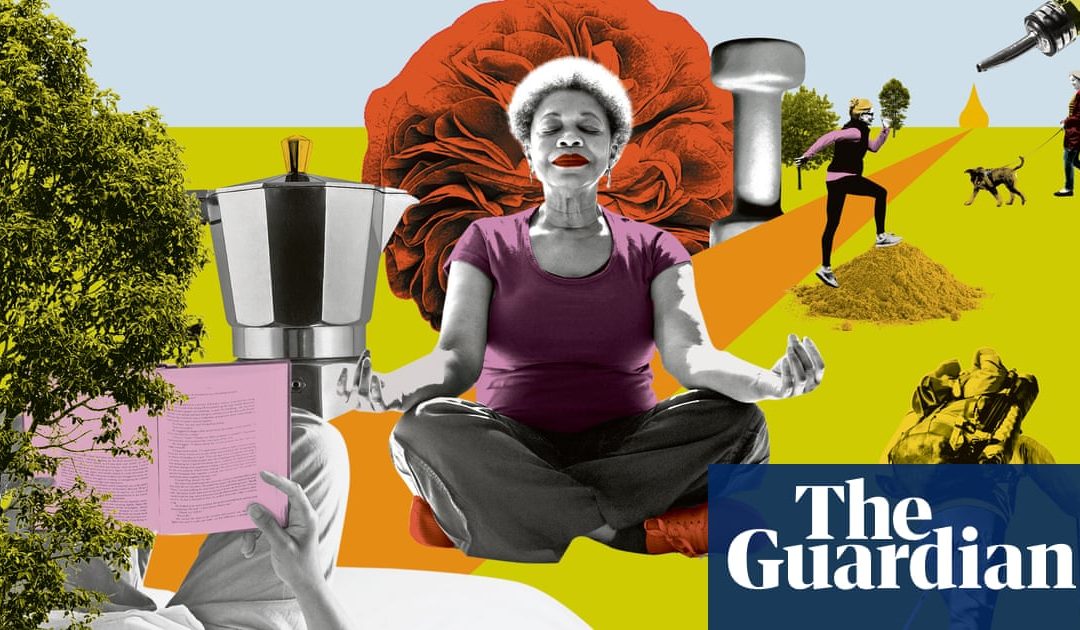
Recent Comments